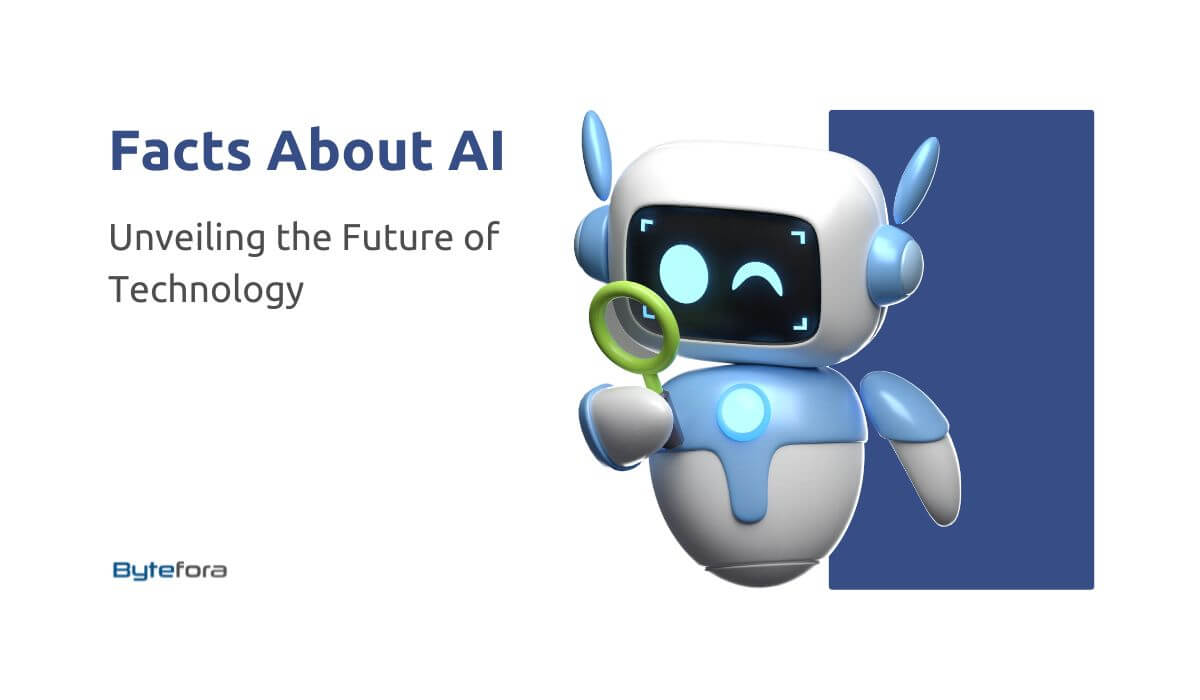Artificial Intelligence (AI) stands as one of the most transformative technologies of our time, reshaping industries, revolutionizing processes, and redefining what it means to interact with technology. In this article, we embark on a journey through the vast landscape of AI, exploring its definitions, historical milestones, and the profound impact it has on various sectors. From healthcare to finance and ethics to future trends, we delve into the complexities and potentials of AI, uncovering fascinating facts about AI that illuminate its significance in our rapidly evolving world.
Table of Contents
Types of AI
Narrow AI
Narrow AI, often termed Weak AI, is designed to excel within a specific domain, executing tasks precisely and efficiently. Industries worldwide benefit from its focused capabilities, streamlining operations and enhancing productivity. An excellent example of Narrow AI is virtual assistants like Siri and Alexa, which proficiently handle tasks such as scheduling appointments and answering queries.
General AI
Contrary to Narrow AI, General AI, also known as Strong AI, aims to simulate human-like intelligence across a spectrum of tasks and domains. While still in theoretical research, the development of General AI holds immense promise for tackling complex problems that require reasoning, learning, and adaptation. The journey towards achieving General AI involves pushing the boundaries of machine learning algorithms and understanding the intricacies of human cognition.
Machine Learning and Deep Learning
Understanding Machine Learning
Machine Learning, a subset of AI, empowers machines to learn from data and improve performance iteratively. Through algorithms and statistical models, machines discern patterns and make data-driven predictions without explicit programming. This paradigm shift in computing enables advancements in various fields, including healthcare, finance, and autonomous vehicles.
Delving into Deep Learning
Deep learning, a sophisticated branch of Machine Learning, mimics the neural networks of the human brain, enabling machines to process vast amounts of data and extract meaningful insights. With its multi-layered architecture, Deep Learning models excel in tasks such as image recognition, natural language processing, and autonomous decision-making. The advent of Deep Learning has propelled AI into new frontiers, paving the way for transformative applications in diverse industries.
Applications of AI
Healthcare
AI is revolutionizing healthcare by augmenting diagnostic capabilities, optimizing treatment plans, and facilitating personalized medicine. Machine learning algorithms analyze medical imaging data to detect anomalies with unprecedented accuracy, assisting clinicians in early disease detection and intervention. Moreover, AI-driven predictive analytics empower healthcare providers to anticipate patient outcomes and allocate resources efficiently, thereby improving patient care and reducing healthcare costs.
Finance
In the financial sector, AI algorithms play a pivotal role in automating routine tasks, enhancing decision-making processes, and mitigating risks. From algorithmic trading to fraud detection, AI-driven solutions enable financial institutions to navigate complex market dynamics and safeguard against fraudulent activities. Moreover, AI-powered chatbots and virtual assistants streamline customer interactions, providing personalized recommendations and improving overall customer satisfaction.
Ethical Considerations in AI
Bias in AI
One of the pressing ethical concerns surrounding AI is the potential for bias in algorithmic decision-making. AI systems rely on historical data to learn and make predictions, so they may inadvertently perpetuate societal biases and inequalities. Addressing this challenge requires diligently identifying and mitigating biases at every stage of the AI development lifecycle, from data collection and preprocessing to model training and evaluation.
Transparency and Accountability
Ensuring transparency and accountability in AI development fosters trust and mitigates unforeseen consequences. Stakeholders must have visibility into the inner workings of AI systems, understanding how decisions are made and the underlying factors influencing outcomes. Moreover, mechanisms for accountability should be established to hold developers and organizations accountable for the ethical implications of their AI deployments.
Challenges and Limitations
Data Privacy and Security
As AI systems rely on vast amounts of data for training and inference, safeguarding data privacy and security becomes paramount. Unauthorized access to sensitive information poses significant risks, ranging from identity theft to breaches of confidentiality. To address these concerns, robust data protection measures, such as encryption, anonymization, and access controls, must be implemented to safeguard against data breaches and unauthorized access.
Unemployment and Job Displacement
The rapid integration of AI across industries raises concerns about potential job displacement and the need for workforce upskilling. While AI-driven automation promises increased efficiency and productivity, it also challenges traditional employment models. To mitigate the adverse effects of job displacement, policymakers, educators, and industry leaders must collaborate to develop reskilling and retraining programs that equip workers with the skills needed to thrive in the AI-driven economy.
Future Trends in AI
AI in Edge Computing
The integration of AI in edge computing promises to revolutionize how data is processed and analyzed in real time, enabling decentralized decision-making and enhanced responsiveness. By deploying AI algorithms closer to the data source, edge computing reduces latency and bandwidth requirements, making it ideal for autonomous vehicles, smart cities, and industrial automation applications. As edge computing continues to evolve, we expect to see AI-driven innovations that empower edge devices to make intelligent decisions autonomously.
Quantum Computing and AI
The convergence of quantum computing and AI promises unprecedented computational power, unlocking new possibilities in problem-solving and optimization. Quantum algorithms can potentially revolutionize machine learning tasks, such as pattern recognition, optimization, and cryptography, by leveraging quantum phenomena such as superposition and entanglement. While still in the early stages of development, the marriage of quantum computing and AI heralds a new era of innovation with far-reaching implications for science, technology, and society.
Final Thoughts on AI’s Impact
In conclusion, the journey of AI has significantly impacted various facets of human life, offering immense potential for innovation and progress. From revolutionizing healthcare and finance to addressing ethical considerations and navigating future trends, AI continues to shape our world profoundly. However, as we embrace the opportunities presented by AI, we must also confront the challenges and limitations inherent in its adoption, ensuring that AI technologies are developed and deployed responsibly to benefit society as a whole.
FAQ
What is Artificial Intelligence (AI)?
Artificial Intelligence (AI) is the simulation of human intelligence in machines. It encompasses a range of techniques and algorithms that enable machines to perceive, reason, learn, and make decisions autonomously.
What are the different types of AI?
There are primarily two types of AI: Narrow AI (Weak AI) and General AI (Strong AI). Narrow AI is designed for specific tasks and excels within a defined domain, while General AI aims to simulate human-like intelligence across various tasks and domains.
What is the difference between Machine Learning and Deep Learning?
Machine Learning is a subset of AI that involves algorithms and statistical models enabling machines to learn from data and improve performance iteratively. On the other hand, deep learning is a sophisticated form of Machine Learning that mimics the human brain’s neural networks, enabling complex data processing and pattern recognition.
How is AI used in healthcare?
AI is revolutionizing healthcare by augmenting diagnostic capabilities, optimizing treatment plans, and facilitating personalized medicine. Machine learning algorithms analyze medical data to detect anomalies, predict patient outcomes, and assist clinicians in decision-making.
What ethical considerations are associated with AI?
Ethical concerns surrounding AI include the potential for bias in algorithmic decision-making, lack of transparency and accountability in AI systems, and implications for data privacy and security. Addressing these concerns requires careful consideration and ethical oversight throughout the AI development lifecycle.
Will AI lead to job displacement?
The rapid integration of AI across industries raises concerns about potential job displacement. While AI-driven automation may eliminate specific jobs, it creates new opportunities and demands for skilled workers. Reskilling and retraining programs are essential to mitigate the adverse effects of job displacement and equip workers with the skills needed to thrive in the AI-driven economy.
What are the future trends in AI?
Future trends in AI include the integration of AI in edge computing, enabling decentralized decision-making and real-time data analysis. Additionally, the intersection of quantum computing and AI holds the promise of unprecedented computational power, unlocking new possibilities in problem-solving and optimization



